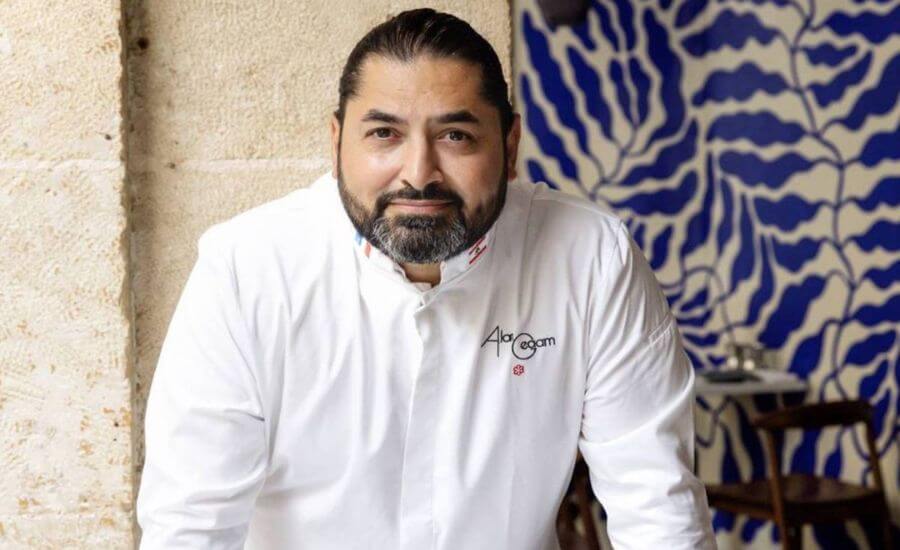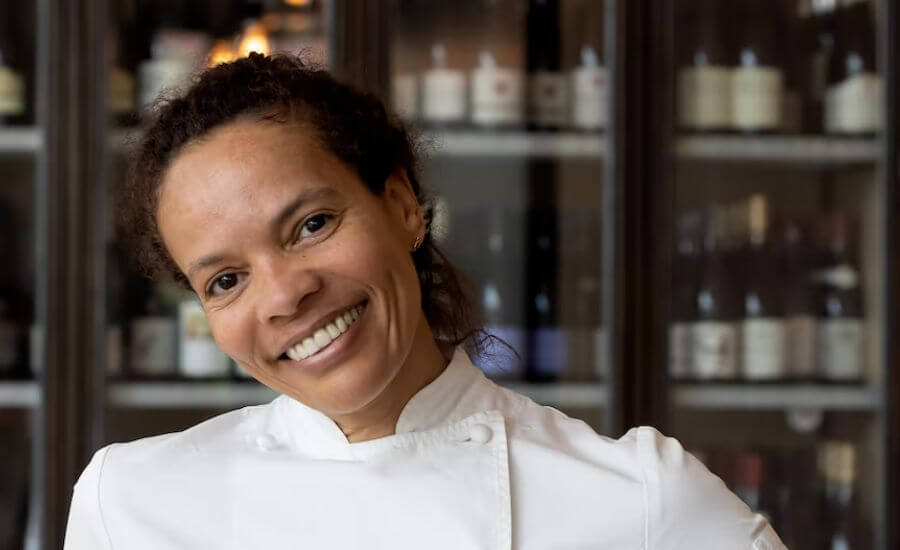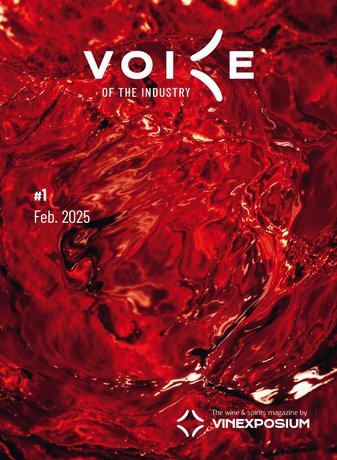Alan Geaam, forerunner of Michelin-starred Lebanese cuisine
Alan Geaam is the only Michelin-starred chef in France to offer Lebanese cuisine. He welcomes us to his palace of delights, Restaurant Alan Geaam, in the 16th arrondissement of Paris, to tell us his story and his vision of tomorrow's world of gastronomy.
What was it about your childhood and career that inspired your love of cooking?
My cooking is the meeting of France and Lebanon. First and foremost, to say thank you to my mother, who gave me the desire to be a chef. And also to tell my story. I grew up in northern Lebanon in the middle of the civil war. During my childhood, I was always next to a bowl in which my mother was cooking. I remember the smell of spices, the way she cooked with a lot of love and emotion… My mother was much loved by people. She always invited everyone to come and eat at our table. When I was a kid, I used to say to myself “one day I want to be like her, to be loved by people and to please others”. At the same time, we were watching Monsieur Bocuse and Monsieur Robuchon on television. I was seeing French cuisine for the first time, completely different from Lebanese cuisine. It felt more like a work of art than cooking, and I promised myself that one day I’d go to Paris and conquer it! In 1999, I arrived in France with a backpack and a smuggler. I don’t speak French, I don’t have a visa and I don’t know anyone. I was alone with my dream of becoming a chef. I first found myself working on building site scaffolding. It was the first job that got me off the street. Then I was recruited as an evening dishwasher in a restaurant. I worked sixteen hours a day, seven days a week, and gradually worked my way up the ladder.
What did you hope to bring to the world of gastronomy by opening your restaurants?
I bought my first restaurant, L’Auberge Nicolas Flamel, in 2007, learning about cooking from books. I didn’t have any training, and it was hard for me to come to terms with my history. I always hid behind French cuisine with a Japanese or Italian influence, because it spoke to everyone. I didn’t take any risks. Until 2017, when I bought this House, the Alan Geaam Restaurant. When I took it upon myself to call my restaurant “Alan Geaam”, Alan Geaam who didn’t train, who didn’t work for the great Alain Ducasse or Yannick Alléno, but who still has the right to be a self-taught chef of Lebanese origin and succeed. I saw the Michelin milieu on television. I never imagined that one day I too would be a Michelin-starred chef. But it was hard work, determination, determination, never giving up, that brought me here. The day when, sitting in this restaurant under construction, I said to myself, “How long am I going to hide behind a story that doesn’t belong to me? How long am I going to use ingredients that don’t belong to me?” I finally said to myself, ”It’s okay, this is my story. This is Lebanon. Lebanon in Paris.” It took me eighteen years to find my identity here in France. Et le jour où j’ai assumé mon histoire, j’ai commencé à sentir une émotion très très forte dans ma cuisine, et l’étoile est arrivée directement derrière. Six mois après l’ouverture de ce restaurant.
And what about today?
People are increasingly demanding vegetarian cuisine. In January 2024, I opened the first 100% vegetarian Lebanese bistro: Qasti Green. “Qasti” means ‘my story’ in Lebanese. My story, in green! We’ll be serving over thirty gourmet vegetarian dishes. That’s the challenge!
What does it mean to be the only starred Lebanese chef?
I carry on my shoulders the responsibility of being the only starred chef of Lebanese origin. It’s a great message for young Lebanese chefs. It shows that you can do it without training, without a CAP. I started from scratch. I started out as a dishwasher, then in the building trade, all the way up to the star. I also have a responsibility to bring my culinary culture back to Paris, to be the ambassador of Lebanese cuisine in France and to show that it’s also an elegant and refined cuisine.
Do your beverages reflect your culinary identity?
For some years now, we’ve been doing a lot of research in Lebanon, in the mountains and in the villages, to bring back something other than hummus and falafel. There are a lot of exceptional products, excellent wines from very good winemakers that we select to share with our customers. We also create non-alcoholic drinks using all these flavors – rosewater and orange blossom, for example – which go very well in cocktails.
What would you most like to find in tomorrow’s world of gastronomy?
I grew up next to a souk and I think that today, we need to go back to the beginning of history, to that period. To that period when the farmer grew his tomato or bean in the middle of the season and then sold it at the market. We should go back a bit. Let the land rest quietly, without chemicals, without pushing production to fetch again and again. These are the principles of a market gardener. These are the principles of a cook. And that’s really the only thing I want today.
Photo : Emanuela Cino




